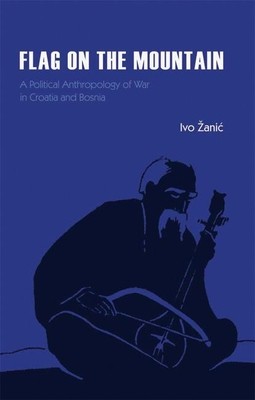
- We will send in 10–14 business days.
- Author: Ivo ?Anic
- Publisher: Saqi Books - Saqi Books
- Year: 2007
- Pages: 570
- ISBN-10: 0863568157
- ISBN-13: 9780863568152
- Format: 16.6 x 24.1 x 5 cm, kieti viršeliai
- Language: English
- SAVE -10% with code: EXTRA
Reviews
Description
Myths arose in Europe about far-flung exotic lands – particularly Serbia and Montenegro – based on the nineteenth-century heroic epic poetry of the South Slavs. These were lands populated by ‘noble savages’ for whom freedom and martial honour were of supreme importance, and they filtered down into the formation of the first and second Yugoslav states (1918-41 and 1945-89), which utilized themes from patriarchal popular culture and the anti-Ottoman epics for their own political ends.
Ivo Žanić reveals how, during the last decade-and-a-half of the twentieth century, military and political leaders in Belgrade followed this pattern of selecting and manipulating cultural motifs in order to justify their repression of Kosovans, and their aggression in Croatia and Bosnia. But he reveals too how the Croatian and Bosnian military and political elites mobilized their own social memories during the post-Yugoslav wars.
Drawing on a wealth of sources – including print media, TV broadcasts, political speeches, and particularly new epic poems, unveiled at political rallies or before military or paramilitary audiences then widely distributed on audio cassette – aniae’s book is far-reaching, revealing how war profiteers, paramilitary leaders, plunderers and charlatans took their places harmoniously within the universal theme of Robin Hood, growing into models of local identity and even into national icons and political exemplars.
Ivo Žanić is a cultural anthropologist teaching media and politics at the University of Zagreb. He has contributed to a number of books and journals published in the UK on myth, religion and language.
EXTRA 10 % discount with code: EXTRA
The promotion ends in 22d.16:47:58
The discount code is valid when purchasing from 10 €. Discounts do not stack.
- Author: Ivo ?Anic
- Publisher: Saqi Books - Saqi Books
- Year: 2007
- Pages: 570
- ISBN-10: 0863568157
- ISBN-13: 9780863568152
- Format: 16.6 x 24.1 x 5 cm, kieti viršeliai
- Language: English English
Myths arose in Europe about far-flung exotic lands – particularly Serbia and Montenegro – based on the nineteenth-century heroic epic poetry of the South Slavs. These were lands populated by ‘noble savages’ for whom freedom and martial honour were of supreme importance, and they filtered down into the formation of the first and second Yugoslav states (1918-41 and 1945-89), which utilized themes from patriarchal popular culture and the anti-Ottoman epics for their own political ends.
Ivo Žanić reveals how, during the last decade-and-a-half of the twentieth century, military and political leaders in Belgrade followed this pattern of selecting and manipulating cultural motifs in order to justify their repression of Kosovans, and their aggression in Croatia and Bosnia. But he reveals too how the Croatian and Bosnian military and political elites mobilized their own social memories during the post-Yugoslav wars.
Drawing on a wealth of sources – including print media, TV broadcasts, political speeches, and particularly new epic poems, unveiled at political rallies or before military or paramilitary audiences then widely distributed on audio cassette – aniae’s book is far-reaching, revealing how war profiteers, paramilitary leaders, plunderers and charlatans took their places harmoniously within the universal theme of Robin Hood, growing into models of local identity and even into national icons and political exemplars.
Ivo Žanić is a cultural anthropologist teaching media and politics at the University of Zagreb. He has contributed to a number of books and journals published in the UK on myth, religion and language.


Reviews